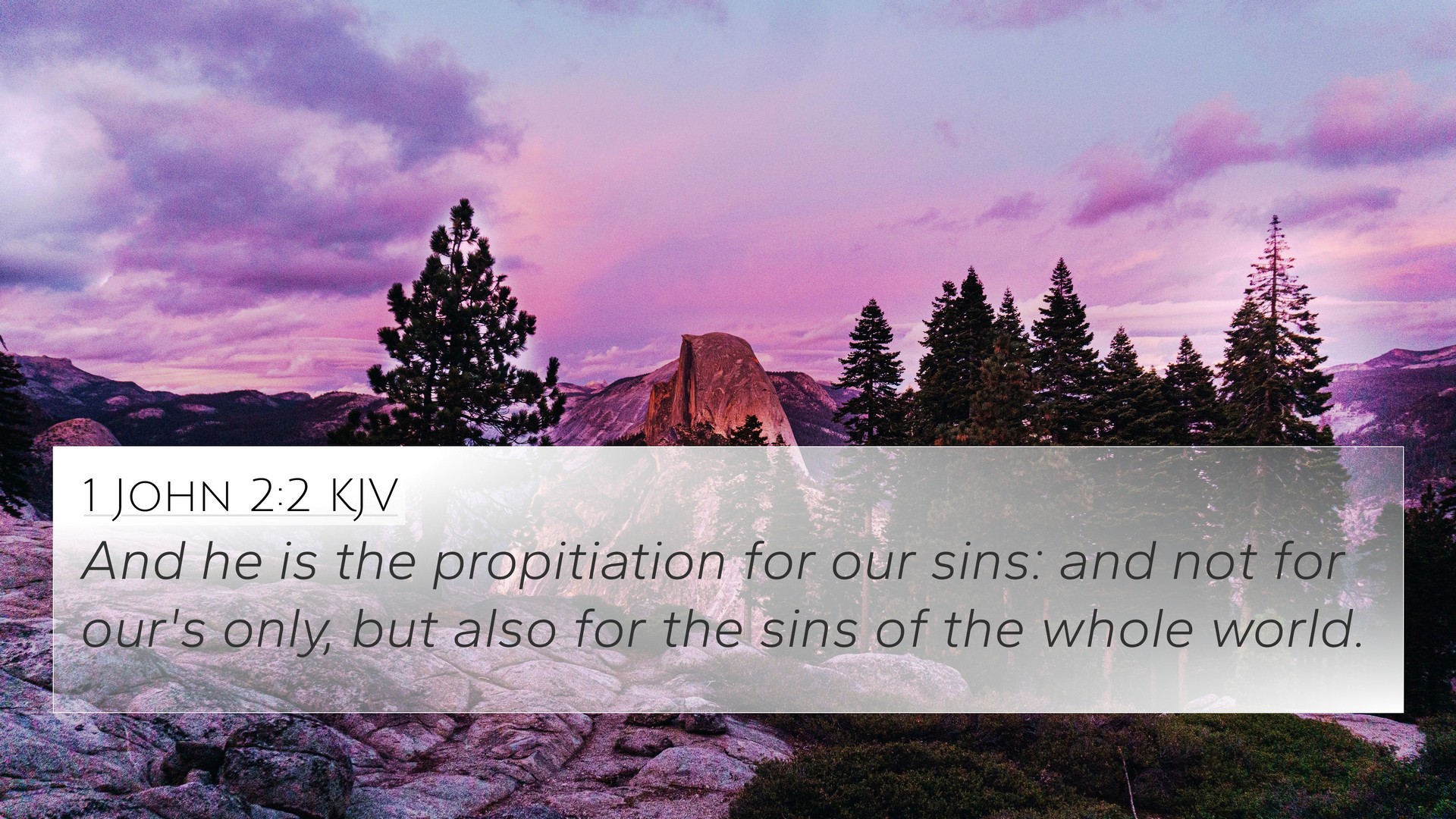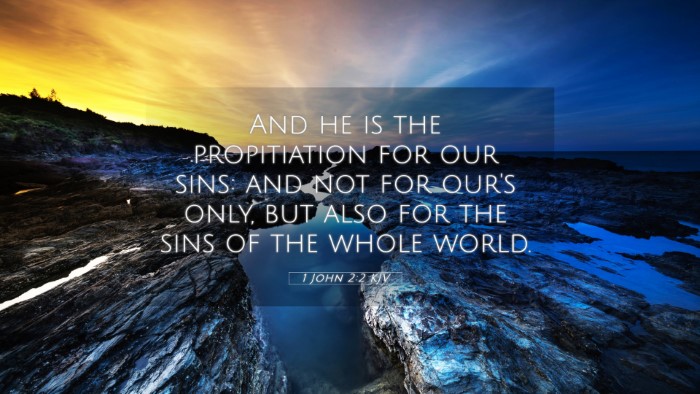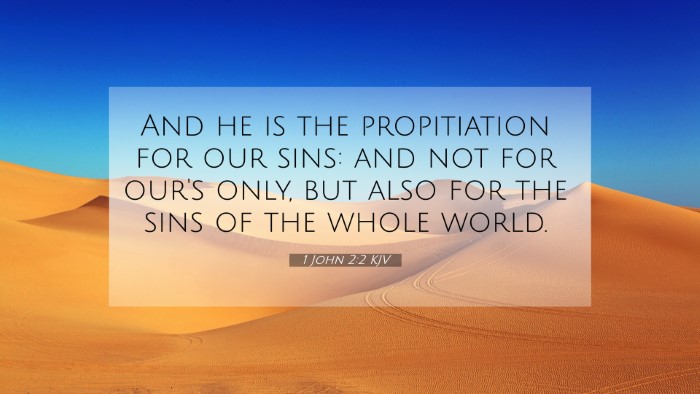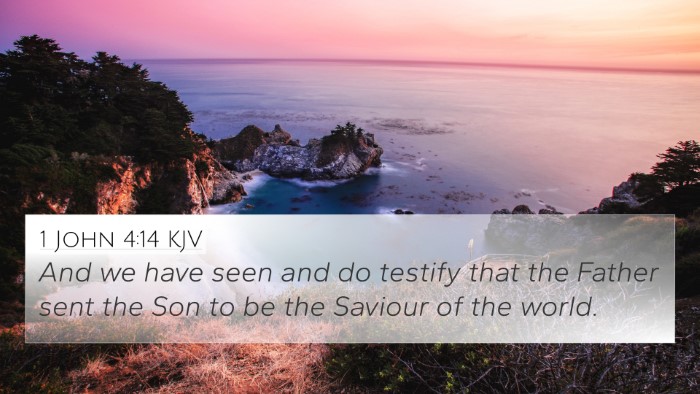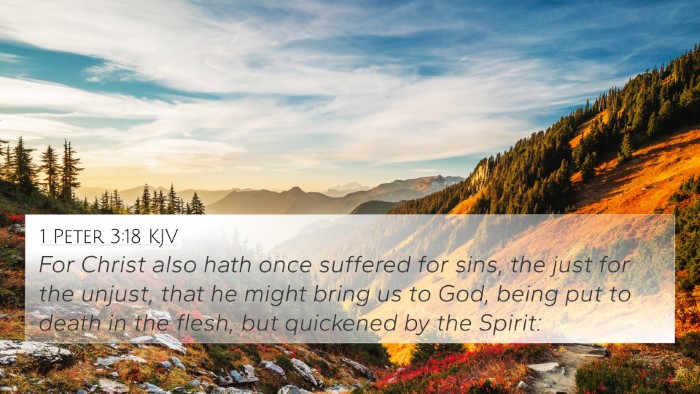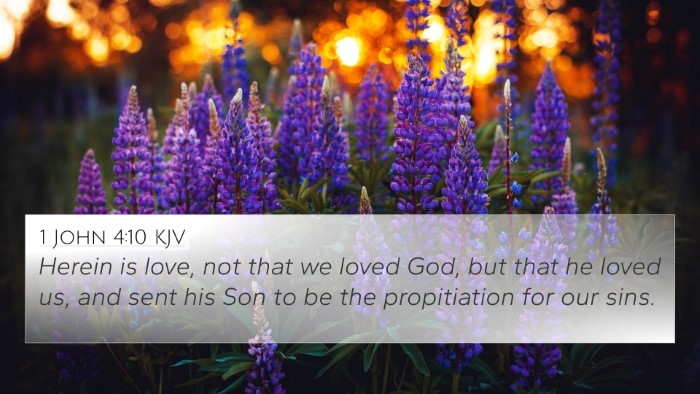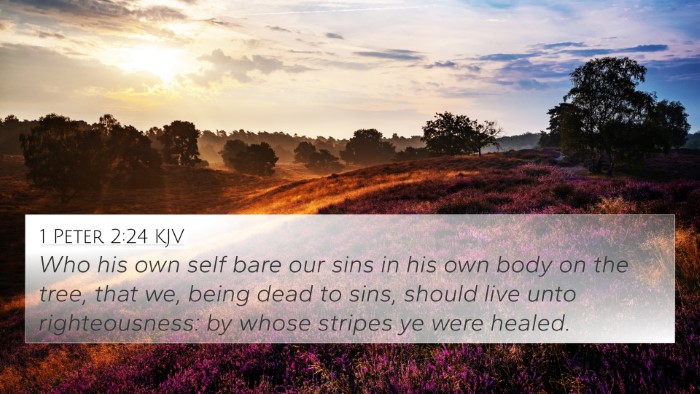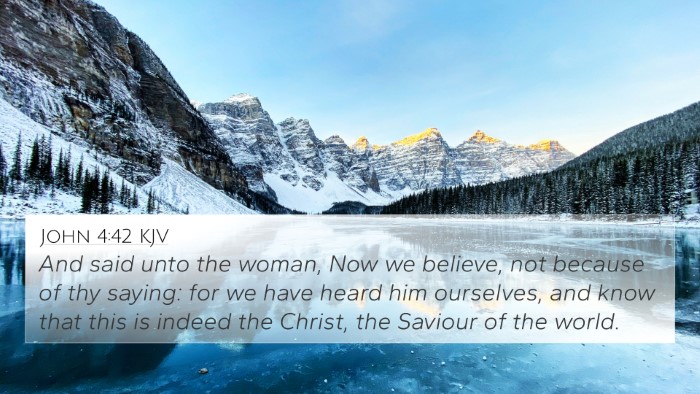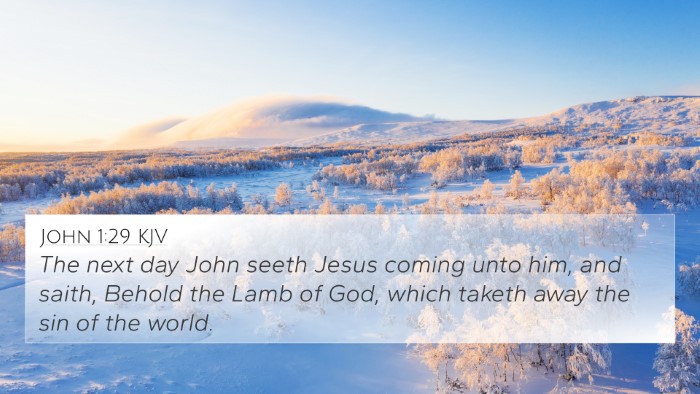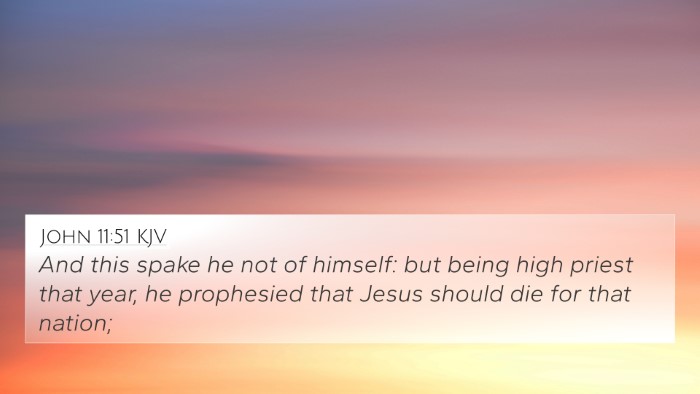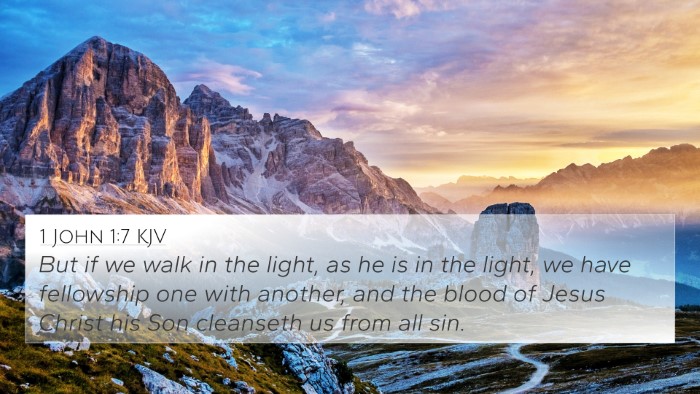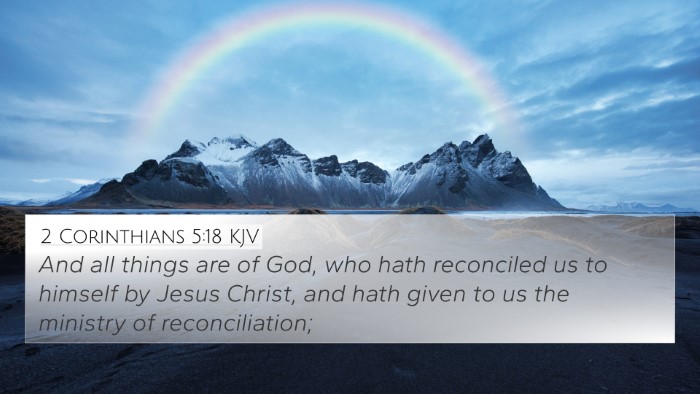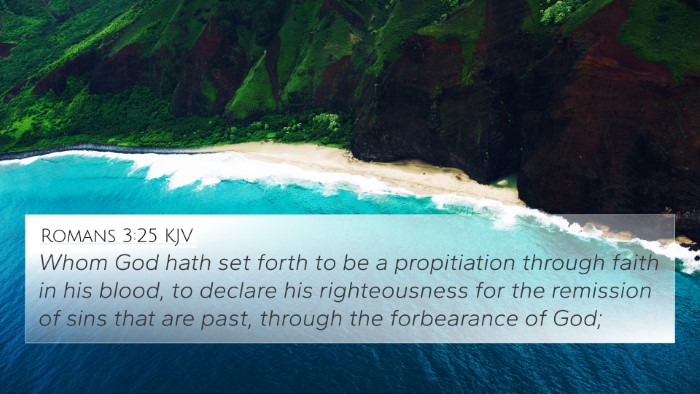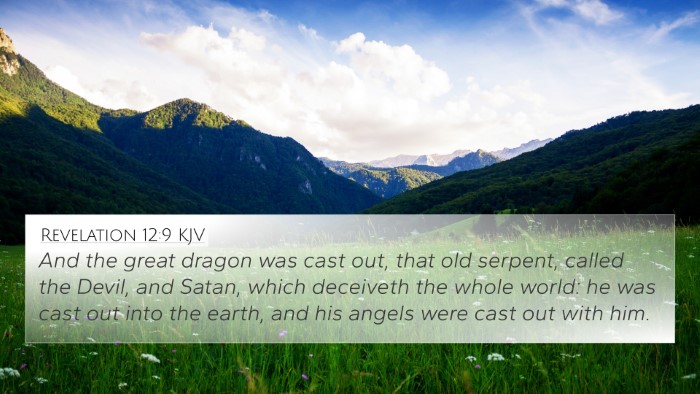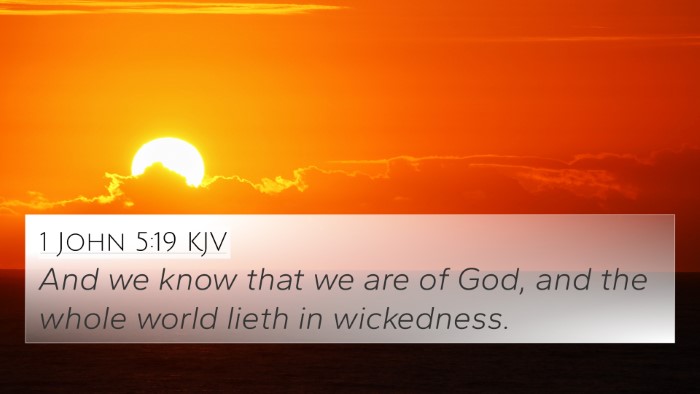Understanding 1 John 2:2
Verse: "And he is the propitiation for our sins: and not for ours only, but also for the sins of the whole world." (1 John 2:2)
Summary of 1 John 2:2
1 John 2:2 highlights the significance of Jesus Christ as our advocate and the means through which our sins are atoned. This verse emphasizes the universal reach of Christ's sacrifice, offering redemption not just for a select few, but for all humanity. Below is a summarized interpretation based on several respected public domain commentaries.
Insights from Matthew Henry
Matthew Henry draws attention to the term "propitiation", explaining that it signifies an offering or sacrifice that appeases God's wrath against sin. He notes that Christ is our advocate who intercedes on our behalf, thus alleviating the consequences of our sins. Henry also stresses that Jesus' sacrifice is sufficient for all, emphasizing a universal invitation to salvation.
Insights from Albert Barnes
Albert Barnes elaborates on the concept of propitiation, asserting that it implies God’s mercy and grace extended towards sinners through Christ's sacrifice. Barnes highlights the importance of the phrase "not for ours only", suggesting it affirms the inclusive nature of salvation. He points out that this verse encapsulates the essence of the Gospel—that it is a message of hope for the entire world.
Insights from Adam Clarke
Adam Clarke emphasizes the depth of Jesus' role as a mediator between God and humanity. He explains that "the whole world" indicates the extent of Christ's sacrifice, suggesting that while not all may receive salvation, the potential for grace is extended to every person. Clarke underscores the profound nature of divine love that seeks reconciliation with all, urging believers to share this message of hope.
Bible Cross-References
- Romans 3:25: "Whom God hath set forth to be a propitiation through faith in his blood."
- 1 Timothy 2:6: "Who gave himself a ransom for all, to be testified in due time."
- John 3:16: "For God so loved the world, that he gave his only begotten Son."
- Hebrews 2:17: "Wherefore in all things it behoved him to be made like unto his brethren, that he might be a merciful and faithful high priest."
- 2 Corinthians 5:19: "God was in Christ, reconciling the world unto himself."
- Isaiah 53:5: "But he was wounded for our transgressions, he was bruised for our iniquities."
- Acts 17:30: "And the times of this ignorance God winked at; but now commandeth all men every where to repent."
Connections Between Bible Verses
This verse creates profound connections with various Scriptural texts that encapsulate themes of redemption, atonement, and divine love.
- Thematic Bible Verse Connections: 1 John 2:2, Romans 3:25, and John 3:16 all emphasize the redemptive nature of Christ’s sacrifice.
- Cross-Referencing Biblical Texts: The link between 1 John 2:2 and Isaiah 53:5 exemplifies the Old Testament prophecies fulfilled in the New Testament.
- Inter-Biblical Dialogue: The relationship between 1 John's emphasis on love and Jesus’ teaching in Matthew 22:37-39 on loving God and others fosters a deeper understanding of Christian duties.
Comparative Bible Verse Analysis
To fully appreciate the richness of 1 John 2:2, it is beneficial to conduct a comparative analysis with closely related verses. For example, comparing this text with Romans 5:8 shows the active work of God in providing salvation while we were still sinners, reaffirming the power of Christ's atonement.
Utilizing tools for Bible cross-referencing, one can systematically look for parallels in themes, characters, and God's attributes that connect across different books.
Tools for Bible Cross-Referencing
To enhance your understanding of passages like 1 John 2:2, employing a Bible concordance or a Bible cross-reference guide is extremely useful. These resources allow readers to find cross-references efficiently and explore the thematic interconnectedness of scriptures.
Conclusion
1 John 2:2 stands as a cornerstone in Christian theology, emphasizing the unprecedented sacrifice of Jesus Christ and the availability of grace to all. Through understanding this verse and its connections within the scriptural context, believers are invited into a deeper relationship with God, fostering hope and unity across the Body of Christ.
